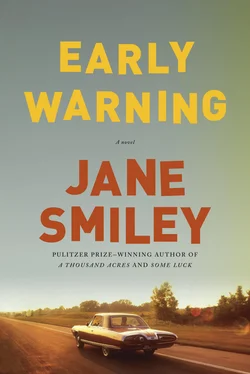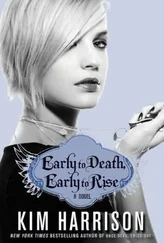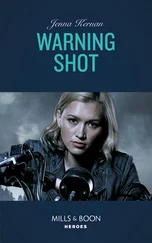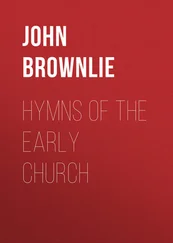Jane Smiley - Early Warning
Здесь есть возможность читать онлайн «Jane Smiley - Early Warning» весь текст электронной книги совершенно бесплатно (целиком полную версию без сокращений). В некоторых случаях можно слушать аудио, скачать через торрент в формате fb2 и присутствует краткое содержание. Год выпуска: 2015, Издательство: Knopf, Жанр: Современная проза, на английском языке. Описание произведения, (предисловие) а так же отзывы посетителей доступны на портале библиотеки ЛибКат.
- Название:Early Warning
- Автор:
- Издательство:Knopf
- Жанр:
- Год:2015
- ISBN:нет данных
- Рейтинг книги:5 / 5. Голосов: 1
-
Избранное:Добавить в избранное
- Отзывы:
-
Ваша оценка:
- 100
- 1
- 2
- 3
- 4
- 5
Early Warning: краткое содержание, описание и аннотация
Предлагаем к чтению аннотацию, описание, краткое содержание или предисловие (зависит от того, что написал сам автор книги «Early Warning»). Если вы не нашли необходимую информацию о книге — напишите в комментариях, мы постараемся отыскать её.
, a national best seller published to rave reviews from coast to coast.
Early Warning — читать онлайн бесплатно полную книгу (весь текст) целиком
Ниже представлен текст книги, разбитый по страницам. Система сохранения места последней прочитанной страницы, позволяет с удобством читать онлайн бесплатно книгу «Early Warning», без необходимости каждый раз заново искать на чём Вы остановились. Поставьте закладку, и сможете в любой момент перейти на страницу, на которой закончили чтение.
Интервал:
Закладка:
Then Aunt Lillian surprised her; she said, “I think you’ll have fun.” Of course, Aunt Lillian was thinking that she would be seeing Janet again; Janet wasn’t so sure about that. Even Aunt Eloise didn’t know she was coming back to California — Aunt Eloise thought she was taking a job in Chicago.
—
ON THE DAY after the end of second grade, Charlie put a dollar and one of the Rice Krispie treats that Mom had made for him on Sunday in his pocket, and set out for the swimming pool. Charlie knew north, south, east, and west, and he knew that the swimming pool was south, but he also knew that he could catch the bus right by his school, which was now out for the summer, although in a week Charlie was going to go to summer school to learn some more about writing. Charlie was left-handed — he knew this because the pointing finger on one hand was longer than it was on the other hand; the longer finger was on his left hand, and to tell right from left, he had to look at his fingers.
Mom had said that he would go to summer school from ten-thirty until noon. Today was a hot day, and Charlie needed a swim. He had taken lessons all last summer and all winter at the Y, and he could do crawl and breast stroke. He had gotten his trunks out of his drawer, and a towel from the hall closet, and rolled it around his trunks. Now he opened the front door and closed it quietly behind himself. Mom was taking a shower.
All through second grade, he had walked to school, at first with Mom, then with Barry Clayton, who was in third grade, and, a few times when Barry was sick, by himself. He went out the front walk to Tuxedo, then walked north on Glen Road. There were six dogs on the way to school. Only one of them was scary, a large brown dog with black on his face who was inside a fence, but as Charlie walked along, the dog ran beside him behind the fence, with his nose to the ground, growling and barking. Charlie said, in his bossiest voice, “Shh, shh, shh, shh,” as he walked along, and he didn’t run. If you ran, that made the dog more ready to jump the fence. Glen Road went along the railroad tracks, and he was not allowed to climb the hill to the railroad tracks, though sometimes he did. He passed Clark, where Ricky Horner lived on the corner (Mom always laughed at this rhyme), then passed Atalanta, and came to Marshall. No cars. It was a quiet morning. He had no idea what time it was. If you walked all the way to Marshall and turned right, you could get penny candy at that store. Charlie liked Mary Janes, Pixy Stix, and candy buttons. If you turned left and crossed Glen Road (which he was not allowed to do), you could walk under the tracks and down to Deer Creek, which was deep and had steep sides, but Ricky Horner said there were fossils in the banks if you looked hard enough. He had shown Charlie two he’d found. Several kids in his class lived on the other side of the tracks, and they walked to school every day, so Charlie didn’t understand why he wasn’t allowed to go there.
The bus stop to the swimming pool was across from the playground. There was nobody standing there, but it was in the shade. He decided it was too risky to stop for candy — besides, he had his Rice Krispie treat — so he went and stood right next to the pole that said “Bus Stop”; those words he could read, though they could also be “suB potS” if you wanted them to be. He was in the lowest reading group, and had been all year. Miss Lewis was not happy when he told her all the words he saw on the page. She wanted him to see “words” when he might really be seeing “sword.” And she always wanted him to read the words in order, from the left side to the right side, even when it might be more fun to read them from the right side to the left side. That was why he had to go to summer school. But, as Mom said, there was no reason to get mad, and so he never did, and so Miss Lewis liked him anyway, more than she liked John King, who was also in his reading group and spent a lot of time snapping his fingers and drawing pictures of men parachuting out of airplanes, and more than she liked Billy Swenson, who just stared at the book and picked his nose. No girls were in their group.
The bus came, and halted, and the door opened. The driver, who was a fat man, leaned forward and looked around Charlie to see if there was a grown-up with him, but when Charlie handed him the dollar, he took it and gave him three quarters, two dimes, and a nickel. Charlie reached up and put his dime and his nickel in the machine, where they rattled down through the glass part, and then he put the rest in his pocket and went and sat down. Five other people were on the bus; two of them were Negroes, one was a very old lady, and two looked like high-school kids. When Charlie was sitting in his seat, the bus pulled away, and his mom’s car went by, going the other direction. Charlie sat back in his seat and arranged the rolled-up towel on his lap. It was very important not to forget it or lose it. He thought he was doing a good job.
—
DEBBIE, indulging herself by going for the first time in her life to the National Horse Show in Madison Square Garden, was sitting maybe eight rows up and toward the middle of the arena. She was watching the “Gambler’s Choice” class, in which the horse and rider had a minute to get over as many jumps as they could. The jumps were assigned points — most points for most challenging jumps. She hadn’t looked at the program, but she recognized Fiona as soon as she trotted into the ring. What was it now — eight years — since she’d spent the night at Fiona’s house before Fiona left for college out in Missouri, and they’d gotten into a little argument, though any argument was unusual for them. Fiona was riding a wiry chestnut; she cut the turn and headed for the triple bar (a big one, too). Debbie nearly stood up and shouted with glee. How terrific she looked, how light her hands and how straight her back as the horse jumped perfectly, landed on his left lead, did a flying change, and galloped for one of the high-point fences, a hogback heading away from the gate. Debbie looked at the scoreboard, and maybe Fiona did, too — she had ten seconds, so she sat deep, pulled the horse sharply around, and raced for the Liverpool, a water jump at least fourteen feet wide. As the bell rang, signaling the end of Fiona’s minute, the horse landed, never touching the water with even his back toe. Debbie stood up clapping, and so did a few around her, but then Kathy Kusner, who had been on three Olympic teams, came in on a gray, and everyone was looking at her. Debbie watched Fiona leave the ring on a loose rein, nodding at Kathy as she went out. She looked at her program. Fiona’s horse’s name was Torch. Fiona Cannon, the girl who would do anything, was now Fiona McCorkle, and her barn was called Ranlegh Stables. If she was in the “Gambler’s Choice,” then probably she would still do anything. Her trainer had ridden in some Olympics. Debbie couldn’t remember which one, though 1952 stuck in her mind. Debbie picked up her handbag.
At the aisle, she made her way along the barrier until she came to the gate. Then she waited, looking at the standings. Fiona was third, but there were six more riders. Debbie sat down and watched. Of the last six, four had knockdowns, which lopped four points off your total, and one had a refusal, which was a loss of three and wrecked his time. Fiona had jumped seven jumps in a minute; this guy got over two. When the class ended, Kathy Kusner was first and Fiona was third. She was beaten for second by a single point. Debbie wondered whether Kathy had ever galloped straight downhill, standing on her horse’s back. All the winners entered the arena and received their ribbons and their applause. The “Gambler’s Choice” was not an Olympic-type class, but the audience appreciated it. Debbie made sure that she was visible when Fiona led her horse past, smiling and holding up her ribbon. Fiona glanced in her direction, smiled an impersonal smile, and then, after she had passed, looked back. Debbie saw that she was recognized — the impersonal smile changed to a look of surprise and then seriousness. Debbie jumped the barrier. There were a few “Hey!”s but she hurried away from them.
Читать дальшеИнтервал:
Закладка:
Похожие книги на «Early Warning»
Представляем Вашему вниманию похожие книги на «Early Warning» списком для выбора. Мы отобрали схожую по названию и смыслу литературу в надежде предоставить читателям больше вариантов отыскать новые, интересные, ещё непрочитанные произведения.
Обсуждение, отзывы о книге «Early Warning» и просто собственные мнения читателей. Оставьте ваши комментарии, напишите, что Вы думаете о произведении, его смысле или главных героях. Укажите что конкретно понравилось, а что нет, и почему Вы так считаете.











